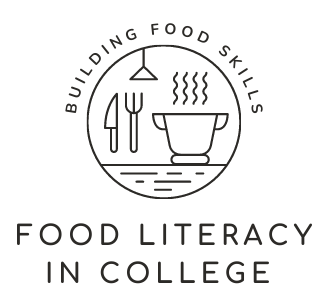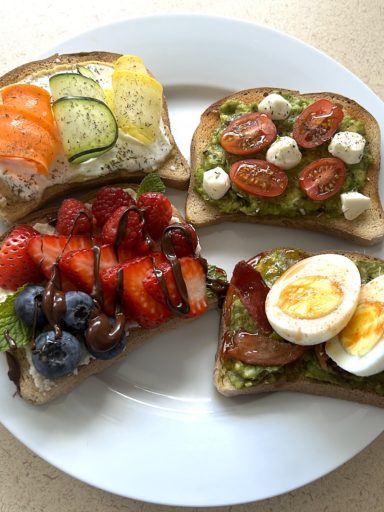You’ve likely heard the saying “breakfast is the most important meal of the day.” As a college student, your mornings are often packed with classes, studying, or rushing out the door. It is tempting to skip breakfast in an attempt to save time or cut calories, but this habit might not be as helpful as you think. In fact, it might lead to unintended consequences that affect your energy levels, health, and even your academic performance. Breakfast is more than just the first meal of the day; it sets the tone for your energy, focus, and eating habits for the rest of the day.
When you skip breakfast, you’re asking your body to function on empty after hours of fasting overnight. This can lead to a drop in blood sugar, leaving you feeling tired, irritable, and unfocused. Your brain needs a steady supply of glucose (an energy source from food) to operate at its best, especially during morning lectures or study sessions. Without it, your concentration and memory can suffer.1 You may have heard that “food is fuel,” and this is especially true during grueling life periods, such as college. Starting your day with breakfast isn’t just about fueling your body and brain; it is also about creating a positive tone for the rest of your meals.
Skipping breakfast can also affect your metabolism and appetite. When you don’t eat a sufficient meal in the morning, your body may compensate by ramping up hunger hormones like ghrelin. This may make you more likely to overeat later in the day, due to your blood sugar levels plummeting.2 People who skip breakfast consume more calories overall, especially from high-sugar and high-fat foods, because they are trying to satisfy their cravings.3 Skipping meals can also disrupt your hunger and fullness cues, which will make it harder for you to realize when you’ve had enough to eat. Regular stable meals and snacks will help keep your blood sugar in check, and also make it easier to make mindful food choices throughout the day.
A well-rounded breakfast can provide the fuel you need to stay energized and focused. Eating in the morning jumpstarts your metabolism, helping your body burn calories more efficiently throughout the day.4 It also keeps your hunger in check, reducing the likelihood of grabbing unhealthy snacks or overeating later in the day. Breakfast can also positively affect your mood. By having a stable blood sugar, you are less likely to experience irritability or the “hangry” feeling that comes from waiting too long to eat. Regular meals will provide a steady stream of energy, helping you stay sharp and productive throughout the day.
Not all breakfasts are created equal. A donut or sugary cereal may give you a quick energy boost, but it will lead to a crash sooner rather than later. Instead, aim for a breakfast that contains a mix of protein, complex carbohydrates, fruits/veggies, and healthy fats.5 Protein, such as eggs or greek yogurt, will help keep you full and support muscle health. Whole grains provide long-lasting energy that can be found in oatmeal and whole-grain toasts and cereals. Fruits and vegetables give you vitamins, minerals, fiber, and might spruce up the color and flavor of the meal. Healthy fats include things like nuts, seeds, and olive oil, which help you feel satisfied for longer.
If time is your biggest obstacle to eating breakfast, there are plenty of ways to make it quick and convenient. Here are some simple and easy ideas: overnight oats, smoothies, toast combos, and grab-and-go foods (fruit, granola bar, hard-boiled eggs, etc.). As a busy college student, you may be used to having irregular schedules that are often unpredictable. This may contribute to skipping meals and having unbalanced eating patterns. However, building even a little bit of consistency into your routine can make a big difference. Carrying healthy snacks, setting reminders to eat, or preparing meals in advance can help ensure you are fueling your body, even on the most hectic days. Some people recommend that you should eat breakfast like a king, lunch like a prince, and dinner like a pauper.6
When you skip meals earlier in the day, you are more likely to find yourself in the kitchen late at night, searching for something to eat. Late-night snacking often involves less-than-ideal choices that are high in added sugars and unhealthy fats. If you know you are going to be up late studying or socializing, try to plan ahead with healthy snacks. By nourishing your body throughout the day, you can avoid those late-night cravings altogether.
Skipping breakfast might seem harmless or convenient, but it can have a ripple effect on your energy, focus, and overall health. Instead of viewing meals as optional, try to see them as opportunities to care for your body and mind. By starting your day with a balanced meal, you’re setting yourself up for success in both the classroom and your health. Breakfast doesn’t have to be complicated – just a few smart choices can go a long way in fueling your body and mind. Start small and gradually add more structure to your eating routine, then over time you will notice improved energy, better focus, and fewer cravings. By prioritizing regular nourishing meals, you are giving yourself the tools to thrive in college and beyond.
References:
- Reagan J. Better breakfasts for your nutrition goals. Health and Wellness Services. 2019 Sep 4. https://www.colorado.edu/health/2019/09/04/better-breakfasts-your-nutrition-goals
- Schwarcz J. Why Breakfast is a Must. Office for Science and Society. 2017 May 23. https://www.mcgill.ca/oss/article/did-you-know-nutrition/why-breakfast-must
- Why You Should Eat Breakfast. Rush. https://www.rush.edu/news/why-you-should-eat-breakfast
- Mizia S, Felińczak A, Włodarek D, Syrkiewicz-Świtała M. Evaluation of Eating Habits and Their Impact on Health among Adolescents and Young Adults: A Cross-Sectional Study. Int J Environ Res Public Health. 2021 Apr 10;18(8):3996. doi: 10.3390/ijerph18083996
- The Freshman 15: Myth or Reality? The Dietitian’s Digest. 2013 Sept 1. https://thedietitiansdigest.org/2013/09/01/the-freshman-15-myth-or-reality/
- Jones L. How to avoid the ‘Freshman 15.’ Hard News Cafe. 2008 Apr 9. https://www.usu.edu/today/story/how-to-avoid-the-freshman-15
- https://pixabay.com/images/search/big%20breakfast/




